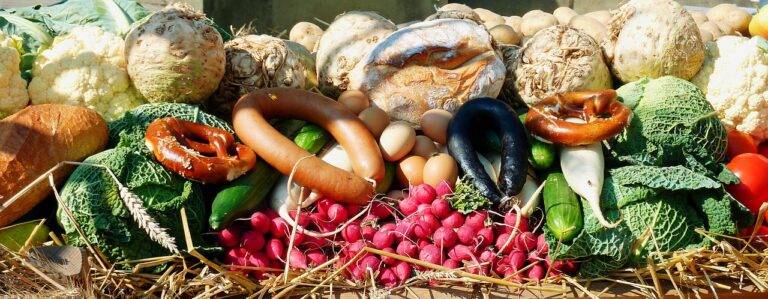Analyzing the Impact of Meat Processing on Food Supply Chains: Sky247 login, Gold365 betting, Gold365
sky247 login, gold365 betting, gold365: Analyzing the Impact of Meat Processing on Food Supply Chains
Food supply chains are an intricate network of processes and activities that bring food from farms to our tables. Among the many components of food supply chains, meat processing plays a significant role in ensuring that consumers have access to a variety of meat products. However, the impact of meat processing on food supply chains is complex and multifaceted, affecting various stakeholders in the food industry.
In this article, we will delve into the key aspects of meat processing and its implications on food supply chains. We will explore how meat processing influences factors such as food safety, sustainability, and supply chain efficiency. By analyzing these factors, we can gain insights into the challenges and opportunities that meat processing presents for the broader food industry.
The Role of Meat Processing in Food Supply Chains
Meat processing is a critical stage in the food supply chain that involves transforming livestock into various meat products. This process typically includes slaughtering, cutting, packaging, and labeling meat products for distribution and sale. Meat processing facilities play a pivotal role in ensuring that meat products meet safety and quality standards while also meeting consumer demand for diverse meat products.
The impact of meat processing on food supply chains can be observed through several key dimensions:
Food Safety: Ensuring the safety of meat products is paramount in meat processing facilities. Strict hygiene and sanitation practices are crucial to prevent contamination and foodborne illnesses. Meat processing facilities must adhere to regulations and standards set by government agencies to maintain food safety throughout the supply chain.
Sustainability: Meat processing can have significant environmental impacts, including water usage, energy consumption, and waste generation. Sustainable practices in meat processing, such as reducing water usage, implementing energy-efficient technologies, and recycling waste, can help mitigate these environmental impacts and promote a more sustainable food supply chain.
Supply Chain Efficiency: Meat processing plays a vital role in optimizing supply chain efficiency by processing raw meat into value-added products that are ready for distribution and consumption. Efficient meat processing facilities can reduce lead times, minimize waste, and streamline logistics, leading to cost savings and enhanced customer satisfaction.
Challenges and Opportunities in Meat Processing
While meat processing offers various benefits to food supply chains, it also presents challenges that can impact stakeholders across the food industry. Some of the key challenges and opportunities in meat processing include:
Labor Shortages: Meat processing facilities often face labor shortages due to the physically demanding nature of the work and the prevalence of repetitive tasks. Investing in automation and robotics can help address labor shortages and improve efficiency in meat processing operations.
Animal Welfare: Ethical considerations regarding animal welfare have become increasingly important in meat processing. Implementing humane handling practices and ensuring the welfare of livestock can enhance the reputation of meat processing facilities and meet consumer demand for ethically sourced meat products.
Technology Integration: Embracing technology and digital solutions can enhance the efficiency and productivity of meat processing facilities. Technologies such as blockchain, IoT, and AI can improve traceability, quality control, and inventory management in meat processing operations.
FAQs
1. How does meat processing impact food safety in supply chains?
Meat processing facilities play a crucial role in maintaining food safety by implementing rigorous hygiene practices, sanitation protocols, and quality control measures. By following regulations and standards set by government agencies, meat processing facilities can ensure that meat products are safe for consumption and free from contaminants.
2. What are some sustainable practices in meat processing?
Sustainable practices in meat processing include reducing water and energy usage, minimizing waste generation, and implementing recycling programs. By adopting sustainable practices, meat processing facilities can reduce their environmental footprint and promote a more sustainable food supply chain.
3. How can technology improve efficiency in meat processing?
Technology such as automation, robotics, blockchain, and AI can enhance efficiency in meat processing operations by streamlining processes, improving traceability, and optimizing inventory management. By integrating technology into meat processing facilities, stakeholders can improve productivity, reduce costs, and enhance customer satisfaction.







